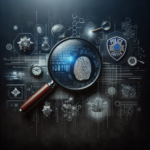Unraveling the Mystery of Criminal Profiling: From Conduct to Convictions
- tcweekly
- 0 Comments
Exploring the Detailed Journey from Behavior Analysis to Judicial Process: The Fascinating Realm of Criminal Profiling
Understanding Criminal Profiling: A Basic Overview
Criminal Profiling or offender profiling is an investigative strategy employed by law enforcement to identify likely suspects in a crime. It attempts to understand the psychological significances and intricacies at play in criminal acts. It often involves an intricate analysis of the nature of the crime, the behavior of the perpetrator during the commission, and the physical evidence left at a crime scene. As an expert criminal psychologist, this intriguing world teems with fascinating investigations, surprising truths, and profound connections between behaviors and eventual justice.
The Science Behind Criminal Profiling
The scientific roots of Criminal profiling trace back to early psychological theories and investigative methodologies. Indeed, the pioneering work of psychologists like Sigmund Freud and Carl Jung significantly contribute to the psychological profiling of criminals. They proposed that individual’s unconscious mind, alongside interpersonal relationships, could influence behavior- a basis that is instrumental in criminal profiling today.
Contemporary criminal profiling involves methodologies from both sociology and criminology, making it a hybrid discipline. The systematic process revolves around analyzing various elements such as the crime scene, behavior, and forensic evidence to establish a highly probable suspect description.
Types of Criminal Profilers
In the realm of criminal profiling, there exist several types of profilers, all specializing in different fields or focusing on various aspects of a crime. FBI Profilers, for instance, belong to the Behavioral Analysis Unit (BAU) and handle high-risk cases such as serial killings, high-profile crimes, or particularly violent crimes. Geographic profilers focus on mapping the location of related crime incidents to determine the offender’s residential location. Clinical psychologists can also serve as profilers, drawing on their understanding of human behavior and psychological disorders to provide insights into an offender’s mindset.
Real-Life Application of Criminal Profiling
One of the most famous real-life examples of successful criminal profiling is the case of “The Unabomber,” Theodore Kaczynski. Between 1978 and 1995, Kaczynski orchestrated a bombing spree across the US. The meticulous and thorough work of James R. Fitzgerald, an FBI criminal profiler, proved instrumental in Kaczynski’s capture. Through linguistic forensic analysis, he ascertained that the manifestos sent by the Unabomber resembled those of Kaczynski, thus leading the FBI to him.
Criticism and Limitations of Criminal Profiling
Despite its renowned success and popularity facilitated by media, criminal profiling faces criticisms and limitations. Chief among them is the perceived lack of empirical data to support its effectiveness. Due to the secretive nature of the information used by profilers and the statistical vagueness surrounding its success rates, criminal profiling lacks the rigor associated with other scientific disciplines.
Additionally, criminal profiling operates on several assumptions, such as that the offender’s behavior at the crime scene reflects their behavior in daily life. This assumption can often mislead investigators due to the highly chaotic and complex reality of human behavior.
The Future of Criminal Profiling
We live in a time of unparalleled technological advancements, and this is significantly influencing the future of criminal profiling. The use of Artificial Intelligence (AI) and machine learning in criminology and forensic psychology positions to revolutionize how criminal profiling is done. The automation of data processing will not only mean more efficiency but also higher successful criminal profiling rates.
Moreover, the integration of more psychological theories, investigative methodologies, and sociological perspectives will serve to strengthen and broaden the discipline. Indeed, the future of criminal profiling promises more effectiveness, complexity, and precision, translating to a more robust and balanced justice system.
Frequently Asked Questions
1. How accurate is criminal profiling?
While criminal profiling has limitations and is not always fully accurate, it is still a highly beneficial investigative tool. Statistics on its success remain vague; however, it has proven to be instrumental in many high-profile cases.
2. Can criminal profiling predict criminal behavior?
The fundamental purpose of profiling is not to predict future behavior, but rather, to provide a psychological sketch using existing behaviors. However, it can sometimes indicate likely future behaviors based on past patterns.
3. How does one become a criminal profiler?
Acquiring a degree in psychology, forensic science, criminal justice, or a related field is usually the first step. Practical experience in law enforcement or military intelligence, alongside special training in behavioral or forensic psychology, is typically required.
4. Can criminal profiling help in preventing crimes?
While its primary function is to assist in solving crimes, criminal profiling can indirectly prevent crime by identifying potential serial offenders and their modus operandi, thereby facilitating early intervention and containment.
5. What is the most challenging aspect of criminal profiling?
One of the most demanding aspects is the need to remain impartial and objective while being exposed to horrific crime scenes or heinous acts. It requires high mental resilience and a strong sense of professional detachment.
From decoding behaviors to bolstering justice, the intriguing world of criminal profiling holds a pivotal role within our justice system, representing the intersection of psychology, criminology, and sociology. Despite its challenges and criticisms, it remains an ever-evolving discipline that promises a more efficient and equitable future in criminal justice.



